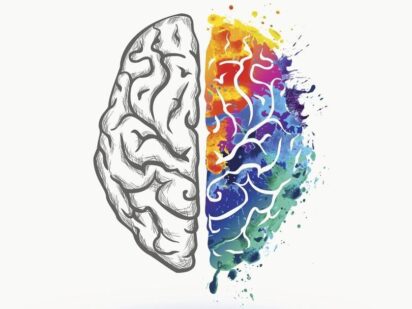CLBB student research intern Ian Hayes reports below on recent advancements in Emerging Adult Justice
An Illinois Appellate Court Decision that considers the implications of Miller v. Alabama and Developmental Neuroscience for Emerging Adults

On May 26, 2020 the Illinois First District Appellate Court (Cook County) issued an opinion allowing Omar Johnson and Israel Ruiz (in a separate decision) to move forward with post-conviction proceedings asking the court to determine if recent advances in developmental neuroscience should apply to those who commit crimes as emerging adults. The appellate court held:
“Johnson and Ruiz have made prima facie showings in their pleadings that evolving understandings of the brain psychology of adolescents require Miller to apply to them. Their petitions and their counsel on appeal urge that we account for the emerging consensus that the development of the young brain continues well beyond 18 years, the arbitrarily demarcated admittance to adulthood for those arrested and entering our criminal law system.”
The appellants, 19 and 18 years old at the times of their homicide offenses (and other violent crimes), will now have an opportunity to further develop the record in an effort to show that the Supreme Court’s decision in Miller v. Alabama (2012) (prohibiting mandatory life sentences for minors) should apply to their respective sentencings as emerging adults. Johnson had been sentenced by the trial court to a discretionary life sentence for murder in addition to concurrent 60-year sentences for armed robbery, aggravated kidnapping, and aggravated vehicular hijacking.
Although Johnson and Ruiz can move forward, they face an uphill battle. In People v. Harris (2018), the Illinois Supreme Court rejected the argument that Miller should apply to young adults. The Illinois Supreme Court noted that “The Supreme Court has never extended its reasoning to young adults age 18 or over. Rather, the Supreme Court defined juveniles as individuals under the age of 18.” Moreover, it was noted that “the line drawn by the Supreme Court at age 18 was not based primarily on scientific research” and thus “[n]ew research findings do not necessarily alter that traditional line between adults and juveniles.”
A more promising legal avenue, left open by the Harris opinion, is to make a similar claim under the proportionate penalties clause of the Illinois Constitution.
In the present cases, by the allowing Johnson and Ruiz leave to file a successive post-conviction petition, the lower court will explore the applicability of the Illinois proportionate penalties clause.
The court in Johnson relied on a similar 2019 case, People v. House, in which an Illinois appellate court found that a mandatory life sentence for a 19 year-old at the time of the offense is in violation of the Illinois Constitution. In House, the court ordered a new sentencing hearing to allow both the State and the defendant to “fully explore” the science of juvenile brain development. The court in Johnson found House to be “well-reasoned” and followed a similar line of reasoning, refusing to distinguish between mandatory and discretionary life sentences for this matter. In support of his petition for appeal, Johnson submitted an affidavit detailing an abusive family history, difficulty grappling with his racial identity, pressure from older figures, and other personal contributing factors that led to his involvement in criminal activity at a young age. Johnson additionally attached several articles on brain development not being complete until the age of 25, noted other jurisdictions outside of the US that extend the juvenile system until age 21, and also included an article noting increases in criminal activity in Illinois during adolescence that then declines in the early 20s. The court stated:
“We find Johnson’s claim that developing brain science may apply to his specific circumstances to be sufficiently supported by the materials attached to his petition—at least, sufficiently supported to warrant further proceedings.”
As noted in the Johnson opinion, cases at the cusp of juvenile and emerging adult justice often deal with those accused and subsequently convicted of the most heinous crimes. As the court put it, the decision “should not be read to minimize or excuse the suffering wrought by the taking of another life”. Omar Johnson was convicted in 1999 for a murder in which he and a friend abducted, robbed and executed Dorothy Jewula, their former boss. Nonetheless, the Illinois constitution and relevant statutes provide protection to all individuals, regardless of the nature of their crimes.
The emerging body of science on juvenile and emerging adult brain development, in conjunction with social science research demonstrating the disproportionate representation of racial minorities serving life sentences should give the courts and legislators alike pause. Given current U.S. Supreme Court precedent, Johnson, Ruiz and similarly situated defendants face significant legal challenges in pleading their claims under Miller in future post-conviction proceedings. Though they may not ultimately prevail in further proceedings, the court’s opinionsin Johnson and Ruiz are encouraging. Courts across the country in the wake of Miller will continue to explore whether the findings of the emerging body of developmental neuroscience requires the courts to reimagine the constitutional protections of emerging adults. The resolution of such a question will continue to have profound effects for some of the most vulnerable in our justice system.



